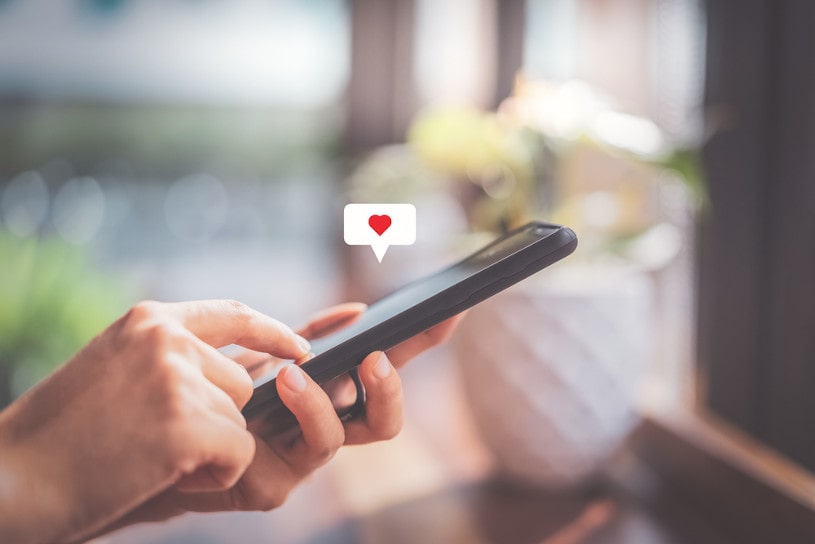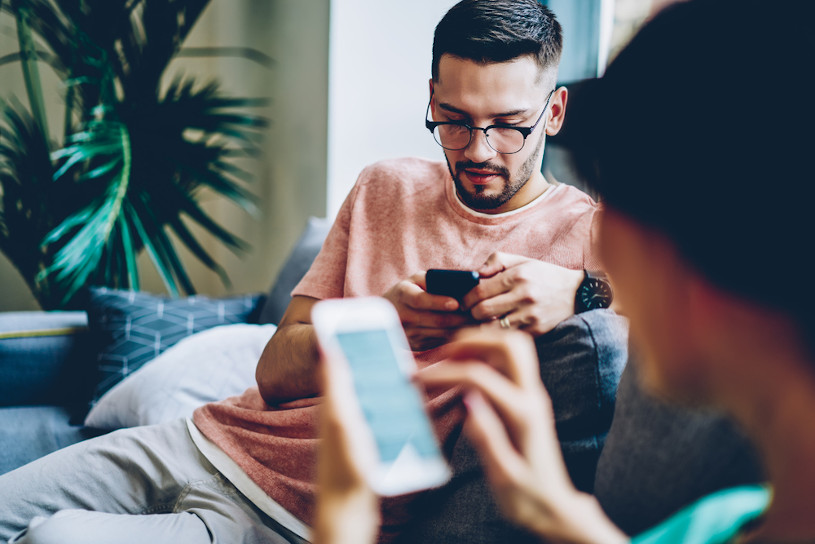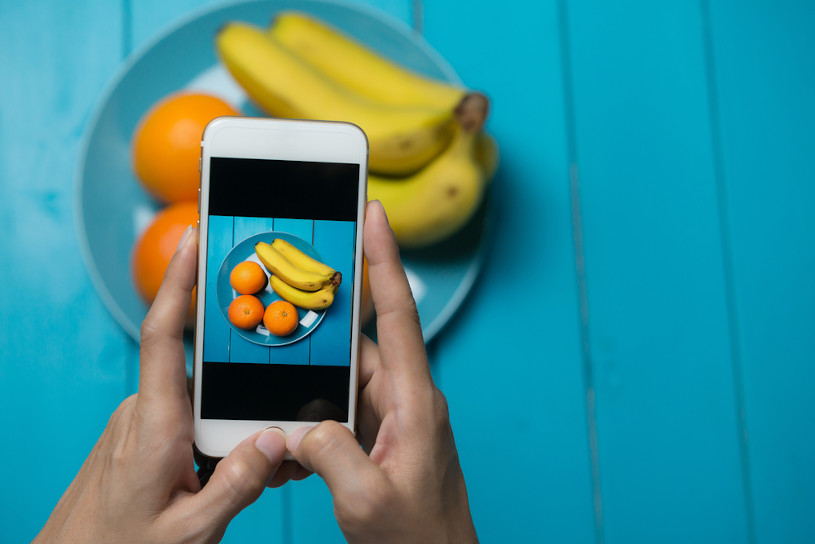Social Media became part of daily lives in the new millennium. As of mid-2020, approximately 2.7 billion people are using Facebook around the world. Other popular platforms are Youtube, Instagram, Linkedin, TikTok, and Twitter, with millions of active users.
Table Of Contents:
Medias creates a network of people around the world. It provides a platform for people to share information, career interests, and other interactive forms via virtual communities. While all of this is seemingly positive, there have been developments – especially in more recent times – that raise questions about possible social media negative effects in people’s lives.
This is not to say outrightly that public networks are bad. However, the purpose of this review is to take a closer look at social media’s negative effects, signs and symptoms to watch out for, and common treatment approaches.
Social Media Addiction: An Overview
Just as is the case with any other addiction, addiction to social media is the relentless urge to use public platforms – even at the detriment of real-life activities and real-life relationships. At the moment, there is no official diagnosis of a “social media addiction disorder.” However, the dangers of public networks are very much in existence.
A 2014 study shows that teenagers’ excessive use of technology has caused disruptions in their physical and mental health, sleeping patterns, weight and levels of exercise, and notably in their school work.
40% of young adults and 21% of adults admit to using public networks even while in the bathroom. A more recent study shows that the occurrence of social media addiction among public network users (1389 people as the sample size) was as high as 36.9% – more than one in three people. Why then is it that we can’t seem to stay away from social media, even for a few minutes?
The answer is simple – social media is addictive. All the “retweets,” Facebook “likes,” and similar rewards for posting content on public networks raise dopamine levels in the brain, causing a shift in the natural state of these levels in the brain’s reward area. Using these platforms can be likened to syringing dopamine straight into the system. The same happens with addicted to smartphone.

Why is Social Media Addictive?
The apparent harmlessness of browsing through profiles is a dangerous assumption. Studies have proven that there are dangers of public networks in the form of an unhealthy effect on the brain, akin to other similar types of addiction resulting from an effect on the “reward center.”
The reward center is located in the mesencephalon (midbrain), and its pathways affect decisions and sensations. When one experiences something rewarding (or uses an addictive substance), neurons in the principal dopamine-producing areas in the brain (the VTA) are activated, causing dopamine levels to rise. Therefore, the brain receives a “reward” and associates the drug or activity with positive reinforcement.
For this reason, activities that increase dopamine levels are the basis of the mechanism of addiction, and one of such activities is public network use. A practical example would be the feeling of satisfaction with putting up a post and getting “likes” on the post.
When the increased dopamine levels that come with this sort of action drop back to normal later on, one feels the urge to repeat the action that raised those dopamine levels, hence going back to the app.
Additionally, the way public network algorithms are set up, the more one engages with content, the more information the site has about the content that you like. As people use the platform more, this content is given priority to be displayed to them, causing users to spend more time than they may notice simply swiping through endlessly. This is another slippery slope that leads to addiction.

How Public Network Affects Mental Health
Social media addiction is taking a toll on people’s lives at an alarming rate. People are losing their jobs, students aren’t paying enough attention to their studies, and even in some extreme cases, it has caused children’s accidental death. What’s more, a recent study shows that there is a link between social media addiction and negative mental health effects.
Some of the Direct/Indirect Dangers of Public Media in Relation to Mental and Physical Health Include:
- Depression
- Social Anxiety Disorder
- Social Isolation
- Anorexia (resulting from deliberate fasting because of unrealistic filters and media)
Signs and Symptoms of Addiction To Social Network Services
Symptoms
When one begins to show some of the following symptoms, there are good chances of the existence of a social media use disorder:
- Sleep disorders
- Being overweight and obese
- Lack of physical activity
- Low success in school and work resulting from a lack of motivation brought on by depression from overuse of social network service
- Feelings of guilt
- Anxiety
- Dishonesty
- Depression
- Low self-esteem
- Loneliness
- Carpal Tunnel Syndrome is a condition that causes numbness, tingling, or weakness in your hand. This can result from being on the phone for too long (or other devices used to browse through news feed).
Most of these negative effects result from the unrealistic expectations that social media addicts place on themselves based on the false representation of glamorous lifestyles displayed by a large part of Instagram users.
Signs
More often than not, recognizing the signs discussed below (or similar situations) can help to curb an addiction quicker than when stronger symptoms begin to appear. If one can relate to any of the signs discussed below, then it may be time to check that habit:
- Cooking to Share on Instagram
When you make a beautiful salad for lunch, what is more important? Eating the salad or sharing your photo on a social network service? With the popularity of Instagram, the visual aspect of food has become much more important than the practical one. This has added oil to the flames of food waste. We’re losing the ability to properly plan meals and shop responsibly, which in turn results in mass food waste. Therefore, if you are spending your time making everything just to share on Instagram, Twitter, and Pinterest, it’s time for you to take a step back and evaluate yourself. - Sharing Everything you Do at Anytime
Do you have friends that you never see, but you know what they’re doing every minute of the day? If so, probably, you are also someone’s “social media friend.”According to the author of “The Distraction Addiction,” Alex Soojung-Kim Pang, “We are interested in how much we have fun or what we do online rather than what we do [in the physical world].” Of course, we want to share incredible experiences like vacations or concerts with our friends, but with the distraction of a phone and trying to get the perfect snap, are we missing more than we gain? - Knowing Everything About People You Don’t Know Very Well
According to Pang, the most important indicator of a person addicted to social media is knowing everything about people we know very little of in real life due to web platforms. Details such as where we sit, what we do, friends, loved ones, and what we ate for breakfast are widely available. This opens up the door to an intimacy that often is not achieved with real friends. How much we know about someone without meeting them is actually a sign of how much time we spend on social network service. According to one study by Pew Research, as much as 88% of teens who use social media personally “agree that people share too much information about themselves on social media.” If there is such a strong consensus about that, why do we do it? - Being Unhappy, Due to Comparing Yourself With Social Networks Personas
One of the signs that social media dependence has reached dangerous dimensions in your life is the feeling of jealousy. With constant access to the internet, we can now follow people on their trips to exotic places, festivals, and events. The ability to pick and choose what we share has opened the floodgates to creating online personas. Subconsciously we know that we only see a small fraction of reality online, however, we often choose to ignore that fact. Therefore, if your friends’ celebrations, gifts, homes, cars, wives, and even body measurements have begun to cause jealousy, then your addiction has reached a serious high. - Being Unhappy When You Can Not Reach Your Phone
Do you feel uncomfortable when you can’t control Facebook while stopped at traffic lights, or you can’t scroll through Twitter before you go to bed? One study shows that Americans check their phones every twelve minutes, while one in ten checks them every four. When unable to do so, they begin to feel anxiety. This just shows how dependent we are and how social network services and technology addiction is a real issue.

Social Media Addiction Treatment Options
The first and singular most important step to finding treatment for a person addicted to social media is to take some time off from public network use. This will help to eliminate the distraction and allow one to focus on recovering from the addiction. It will also help to find the right method to address the addiction (it can vary per individual) and strike the right balance between online media use and overuse.
Some Effective Treatment Approaches Include:
- Talk Therapy: Talk therapy works by identifying the problem first and then finding a solution based on the information discovered. On that note, one-on-one psychotherapy is a great talk therapy option for helping a person addicted to social media. When the user is made to understand the severity of the damage that is being caused, the willingness to cut the habit and recover is greatly improved.
- Family Therapy: Organizing therapy sessions with the individual’s family can further enhance each session’s effectiveness. For one, the person is likely to be a lot more comfortable when surrounded by loved ones. Another advantage of this form of therapy is that the family also gains a good understanding of the problem and can contribute to helping the individual recover. Think of it as a support group/system.
- A condition such as social media addiction can come with other problems such as mental health issues. In these cases, there may be a need to prescribe medications that will treat the mental health issues concurrently while the individual is trying to recover from the trigger.
How To Use Social Media Safely?
If one gets the feeling of developing an addiction to the use of public networks, or just a general feeling that there are too many chatting apps on your devices that take up a lot of valuable time needlessly, then it is time to seriously look at managing time more efficiently. This will involve developing a plan to reduce public network use and using it safely when one actually uses those apps/websites.
There are a Few Tips to get Started in this Regard, and They are as Follows:
- Learn to mindfully filter any comments before posting. The key questions to ask here are if the information being passed on through the comment is true, if it is necessary, and if it will intentionally hurt someone. These restrictions will limit the regularity by which one post’s comments on social media and will generally help to ensure that even the comments that one does post are responsible and unharmful.
- Learn to live in the moment. The urge to post fun activities on these platforms can be very strong, and there is no harm in occasionally giving in. However, one must ensure that the urge to post does not overshadow the actual feeling of living these experiences and enjoying those moments in real-time. In fact, the aggressive use of media in this way has proven to be harmful in the sense that one’s memory of such events can fade or change quite easily as time passes.
- Be deliberate about not making comparisons with people online. Most people’s content represents only a small portion of their lives, and even these are not always reflective of the true situation of things. When one is constantly comparing oneself to these people’s lives, the feeling of inadequacy can creep in, along with an unhealthy obsession to continue using social media to stalk the lives of other people.
- Follow content that genuinely makes you happy. This helps to ensure that the bulk of exposure is to things and people that will bring positive feelings when one is online.
- Consider deleting any apps that are causing stress. When one discovers that the platform is causing more harm than good, it may be time to delete an account to reduce the urge to go back to such internet addiction triggers.
- Don’t struggle alone. Find other people with the same goals of reducing the time of use and helping each other hit those goals. Support always makes these things easier.
The advent of public networks has generally been seen as another significant marker in global technology progression, and rightly so. However, just like any other addiction, there is a line where web platforms use becomes unhealthy and sometimes dangerous. Hence, recognizing when and where to draw the line is crucial to protecting one’s state of mind and well-being.
Hope Without Commitment
Find the best treatment options. Call our free and confidential helpline
Most private insurances accepted
Page Sources
- Obar, Jonathan A. Wildman, Steve, Social media definition, and the governance challenge: An introduction to the special issue. 2015. https://papers.ssrn.com/sol3/papers.cfm?abstract_id=2647377
- Fitzgerald, B. Disappearing Romney, The Huffington Post. 2012. https://www.huffpost.com/entry/disappearing-romney-website_n_2117165
- How early Twitter decisions led to Weiner's downfall, 2011, http://www.cnn.com/2011/TECH/social.media/06/14/twitter.decision.weiner.wired/index.html
- Rafla, M., Carson, N.J. & DeJong, S.M. Curr. Adolescents and the internet: what mental health clinicians need to know. 2014. https://pubmed.ncbi.nlm.nih.gov/25070673/
- Haines, Duane E. Neuroanatomy: an atlas of structures, sections, and systems. https://find.library.unisa.edu.au/primo-explore/fulldisplay/UNISA_ALMA51192518230001831/UNISA
- Bányai, Fanni; Zsila, Ágnes; Király, Orsolya; Maraz, Aniko; Elekes, Zsuzsanna; Griffiths, Mark D.; Andreassen, Cecilie Schou; Demetrovics, Zsolt, Problematic Social Media Use: Results from a Large-Scale Nationally Representative Adolescent Sample. 2017. https://www.ncbi.nlm.nih.gov/pmc/articles/PMC5222338/
- O'Keefe Schurgen, Gwenn. Clarke-Pearson, Kathleen. The impact of Social Media on Children, Adolescents, and Families. American Academy of Pediatrics. 2011. https://pubmed.ncbi.nlm.nih.gov/21444588/
- Carpal Tunnel Syndrome Fact Sheet, NIH. https://www.ninds.nih.gov/Disorders/Patient-Caregiver-Education/Fact-Sheets/Carpal-Tunnel-Syndrome-Fact-Sheet
- Yubo Hou, Dan Xiong, Tonglin Jiang, Lily Song, Qi Wang. Social media addiction: Its impact, mediation, and intervention. 2019. https://cyberpsychology.eu/article/view/11562
- Ofir Turel, Damien Brevers, Antoine Bechara. Time distortion when users at-risk for social media addiction engage in non-social media tasks. 2018. https://www.sciencedirect.com/science/article/abs/pii/S0022395617308750
- Janarthanan Balakrishnan and Mark D. Griffiths. Social media addiction: What is the role of content in YouTube?. 2017. https://akjournals.com/view/journals/2006/6/3/article-p364.xml


